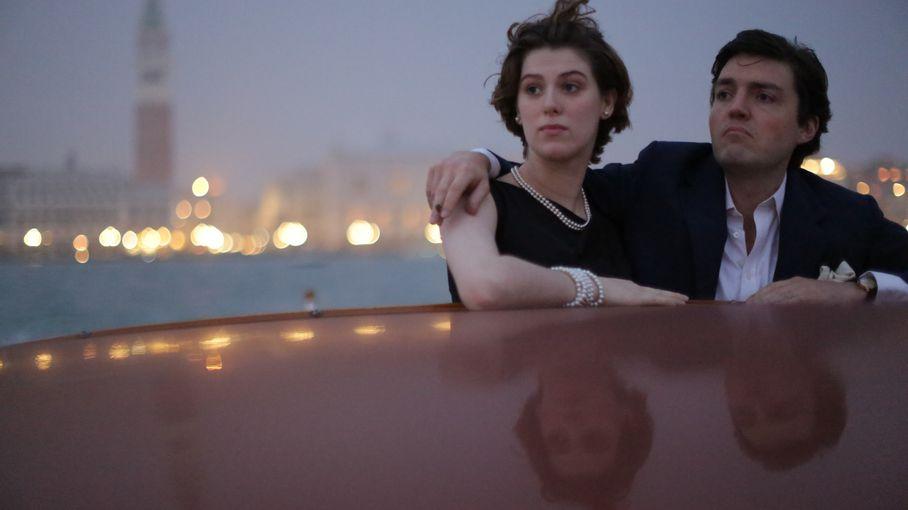“Haute Couture”, the film by Sylvie Ohayon can go get dressed<
While trying in vain to hide them, the film with Lyna Khoudri and Nathalie Baye accumulates the usual flaws of the “Paris-suburb” genre.
"It's sublimeuh, it's magnificentuh, the haute couture of Paris"... It's hard to do more accurate and funnier behind the scenes of fashion creation than the legendary Signé Chanel d'Arte (2005), whose generic chorus never ceased to resonate in our heads throughout the screening of Haute Couture, a rather improbable film featuring a little suburbanite (Lyna Khoudri) taken under the wing of a first studio at Dior at the end of her career (Nathalie baye).
Obviously, the director also had to take a look at Loïc Prigent's documentary series, whose whispering atmosphere of working women and their gentle and sympathetic personalities more or less discreetly guide her casting choices (Pascale Arbillot) and her game instructions.
>> To read also: “Aline”, “Cry Macho”, “Tre Piani”… Films of the week – Les Inrocks
Clichés in shambles

In the foreground, Haute Couture however has other fish to fry than the simple description of a profession, since it mainly attacks a genre that we can only guess too well and of which it will wisely tick most of the boxes: the Paris-suburb social tale, its tandems “that everything opposes” and which will weave, despite their differences, a poignant reconciliation of extremes. Nothing new under the sun of counter sociology: the young people of the districts like to hang out in town, eat kebabs and steal the bags of the old women; the gentrified pre-retiree talks to her flowers, goes to the museum and believes in the virtues of discipline in the workplace.
So of course, the main actress explains in an interview that “never in her life” she would have made the film if it corresponded to the clichés of the genre – but that too, isn't it a cliché of the gender ? It is that Haute Couture actually seems quite conscious and borderline complexed by its own sociological schematism, which it regularly tries to excuse, in particular by very questionable choices of representations with regard to the city.
It is the place of a very virtual misery (we are told about the fact that we have to “get out of it” but we never see anything about it, apart from a clownish depressed mother) and of solidarity for pubards (a bewildering finale with dozens of neighbors we've never seen cheering on the balcony for no reason), sprinkled with shots of pschitt woke that don't particularly smack of sincerity (the kebab held by a young transgender woman, sociological incongruity that the movie does not support at all).
In this umpteenth occurrence of the good old match between excessive verlan ("it's the bag we farted in the hole!") and excess of pink pages ("I'm fed up, I'm going to put the meat in the cloth!”), the only slightly touching character will probably remain Abel/Abdel, Arab more or less well-born (his mother is a lawyer) hiding the “d” of his first name to evolve masked in the world of fashion , but also hiding from his friends the reality of his origins: he never grew up in the suburbs. Caught in the crossfire of two portrayals that don't want him, he might have made a better main character, and the fact that the film comfortably ships him into pure boyfriend functionality is ultimately telling enough.


 Tags:
Tags: Prev
Prev







